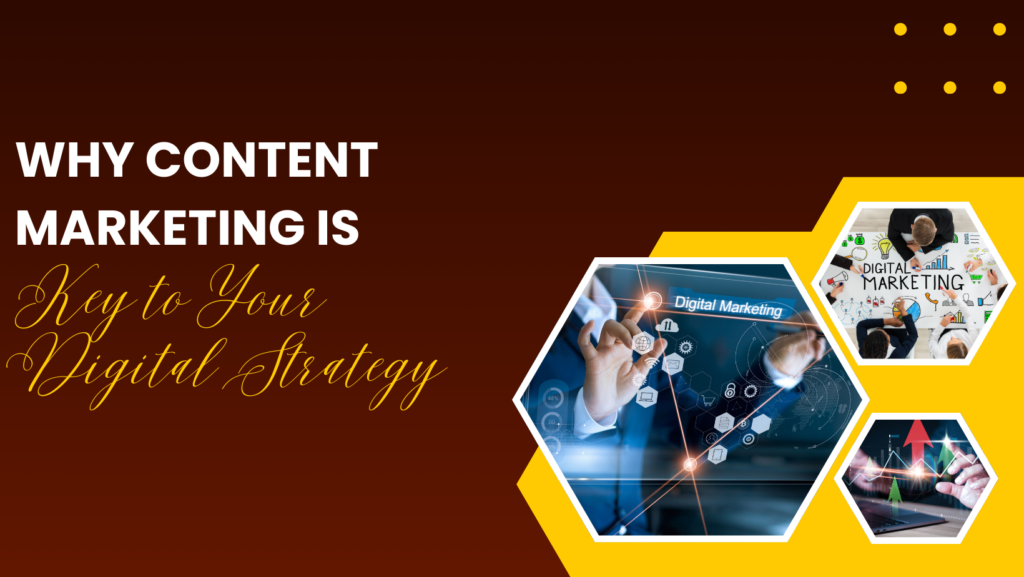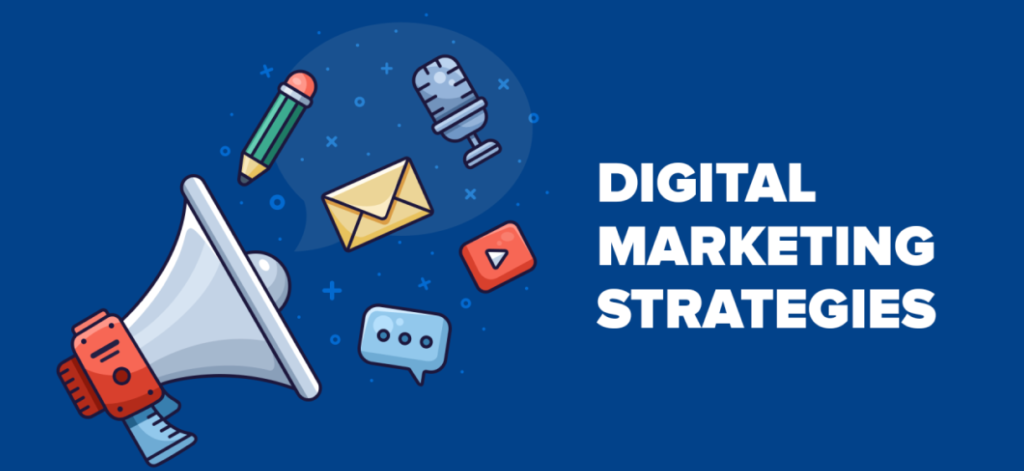Introduction
In today’s digital landscape, businesses must stay ahead of the competition by leveraging innovative marketing techniques. Among the most effective methods is content marketing, which not only attracts and engages audiences but also builds long-term relationships with customers. This blog will explore why content marketing is crucial to your digital strategy and how it can enhance brand visibility, drive traffic, and generate leads.
What is Content Marketing?
Content marketing is a strategic approach focused on creating, distributing, and promoting valuable, relevant, and consistent content to attract and retain a clearly defined audience. Unlike traditional advertising, content marketing does not explicitly promote a brand but instead provides information that helps potential customers solve problems or gain insights related to their interests.
The Importance of Content Marketing in Your Digital Strategy
1. Enhances Brand Awareness and Authority
One of the most significant benefits of content marketing is its ability to enhance brand recognition. When businesses consistently produce high-quality content, they establish themselves as industry leaders. Blog posts, whitepapers, infographics, and videos help showcase expertise and knowledge, building trust with potential customers. As consumers see a brand as a credible source of information, they are more likely to engage with its products and services.
2. Boosts Search Engine Optimization (SEO)
Search engines favor websites that regularly produce fresh, relevant content. By incorporating targeted keywords, optimizing headlines, and including backlinks, businesses can improve their search rankings. A higher ranking on search engines like Google leads to increased organic traffic, helping brands reach a wider audience. Furthermore, content marketing contributes to domain authority, making it easier for potential customers to discover a business online.
3. Drives Website Traffic and Engagement
High-quality content attracts visitors to a website, keeping them engaged for longer periods. Informative blog posts, engaging videos, and interactive infographics encourage users to explore different sections of a website. Additionally, businesses can use content to direct visitors to specific landing pages, increasing conversion rates. The more engaging and useful the content, the higher the chances of converting visitors into loyal customers.
4. Generates and Nurtures Leads
Content marketing plays a crucial role in lead generation. Businesses can use gated content like e-books, webinars, and exclusive reports to encourage users to share their contact information. Once a lead is captured, businesses can nurture it through personalized email campaigns, newsletters, and targeted content. By providing valuable insights at different stages of the buyer’s journey, businesses can guide prospects toward making a purchase.
5. Supports Social Media Marketing
Content marketing and social media marketing go hand in hand. Well-crafted content can be repurposed and shared across various social media platforms to increase reach and engagement. Social media users are more likely to engage with brands that provide informative and entertaining content rather than just promotional material. By sharing valuable content, businesses can foster a loyal community of followers who actively engage with their posts.
6. Builds Customer Trust and Loyalty
Consumers prefer to buy from brands they trust. By consistently delivering valuable content, businesses can create meaningful relationships with their audience. Educational blog posts, customer testimonials, and case studies help establish credibility and demonstrate a brand’s commitment to customer success. Over time, loyal customers become brand advocates, helping to attract new customers through word-of-mouth recommendations.
7. Cost-Effective Marketing Strategy
Compared to traditional advertising, content marketing is cost-effective and delivers long-term results. While paid ads generate immediate traffic, their impact fades once the budget runs out. On the other hand, high-quality content continues to drive traffic, leads, and sales over time. With a well-planned content strategy, businesses can maximize their return on investment (ROI) without constantly increasing their marketing budget.
How to Implement an Effective Content Marketing Strategy
1. Define Your Target Audience
Understanding your audience is the foundation of any successful content marketing strategy. Businesses should identify their ideal customers, analyze their preferences, and create buyer personas to tailor content accordingly. Knowing what your audience needs allows you to produce relevant and valuable content that resonates with them.
2. Develop a Content Plan and Calendar
A well-structured content plan ensures consistency and helps maintain engagement. Businesses should create a content calendar outlining topics, formats, publishing schedules, and distribution channels. A mix of blog posts, videos, podcasts, and infographics can keep the content strategy dynamic and appealing to different audience segments.
3. Focus on High-Quality and Valuable Content
Quality matters more than quantity. Businesses should prioritize creating well-researched, informative, and engaging content that adds value to their audience. Content should address pain points, answer common questions, and provide actionable insights. Investing in professional writers, designers, and videographers can significantly improve content quality.
4. Optimize Content for SEO
To maximize content reach, businesses should optimize their content for search engines. This includes using relevant keywords, writing compelling meta descriptions, incorporating internal and external links, and optimizing images. Regularly updating old content can also improve SEO rankings and maintain relevance.
5. Leverage Multiple Distribution Channels
Creating great content is only half the battle; distributing it effectively is equally important. Businesses should use various channels, including social media, email marketing, guest blogging, and influencer collaborations, to amplify content reach. Repurposing content into different formats (e.g., turning blog posts into videos or infographics) can also enhance visibility and engagement.
6. Measure and Analyze Performance
Tracking content performance helps businesses refine their strategies for better results. Key performance indicators (KPIs) such as website traffic, engagement rates, conversion rates, and social shares provide valuable insights into content effectiveness. Using analytics tools like Google Analytics, HubSpot, or SEMrush can help businesses make data-driven decisions to optimize their content strategy.
Conclusion
Content marketing is a powerful tool that can elevate your digital strategy and drive sustainable growth. By enhancing brand awareness, improving SEO, generating leads, and fostering customer trust, content marketing helps businesses achieve their long-term goals. Implementing a well-structured content marketing strategy ensures consistent engagement and higher ROI, making it an indispensable part of any digital marketing plan. Investing in high-quality, valuable content today will set your brand apart and ensure success in the competitive digital landscape.


